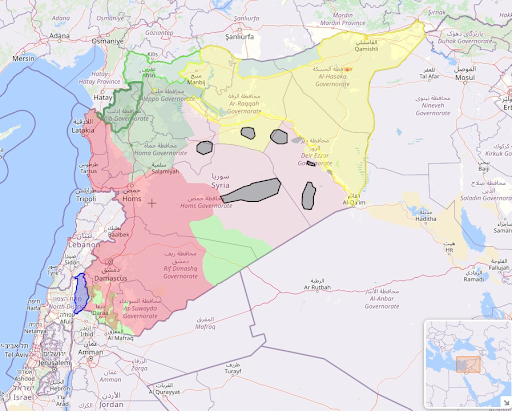
Syria and the "Arab Spring" 2.0
Erdogan: We hope that the Syrian "opposition" factions will continue their progress.. and the goal is Damascus
Turkish President Recep Tayyip Erdogan said he hopes that the progress of what he called the "opposition" in Syria will continue "without problems," considering that the next "target" after the armed factions took control of Idlib, Hama and Homs, "is Damascus."
Erdogan's words came in press statements, and he added: "We had invited Assad (Syrian President Bashar al-Assad)... and we told him: Let us determine the future of Syria together. Unfortunately, we did not receive a positive response on this issue."
Recently, Syria's permanent representative to the United Nations, Qusay al-Dahhak, confirmed that the terrorist attack on northern Syria could not have been carried out without a green light and a joint Turkish-Israeli operational order paved by repeated Israeli attacks on Syrian territory.
Syrian President Bashar al-Assad also confirmed his country's insistence on eradicating terrorism, stressing that terrorists do not represent a people or institutions, but rather the apparatuses that support them.
Foreign Ministers of Iraq, Syria and Iran: Protecting Syria's Security is Necessary to Protect the Security of the Region
The foreign ministers of Iraq, Syria and Iran stressed on Friday that "threatening Syria's security poses a general danger to the stability of the entire region," stressing that "there is no choice but to coordinate, cooperate and consult diplomatically continuously, in order to eliminate all risks of escalation in the region."
In a joint statement following the meeting at the Iraqi Foreign Ministry, the ministers stressed "the seriousness of the events in Syria and their sensitivity to all parties in the region," warning of "the possibility of their expanding dimensions, which will pose a grave danger to the three countries and threaten the security of their peoples and the entire region."
The ministers also urged "the need to mobilize all Arab, regional and international efforts to reach peaceful solutions to the challenges facing the region in general, and Syria in particular."
In addition, the statement stressed "the agreement on the need to continue consultation and coordination between the three countries, follow up on these developments and prepare for any developments in the coming days," and respect for Syria's sovereignty, independence, unity and territorial integrity.
They also condemned "terrorism in all its forms and manifestations classified by the Security Council," stressing "collective action to confront it." They also condemned the ongoing Israeli attacks on Syria, Gaza and Lebanon.
















































